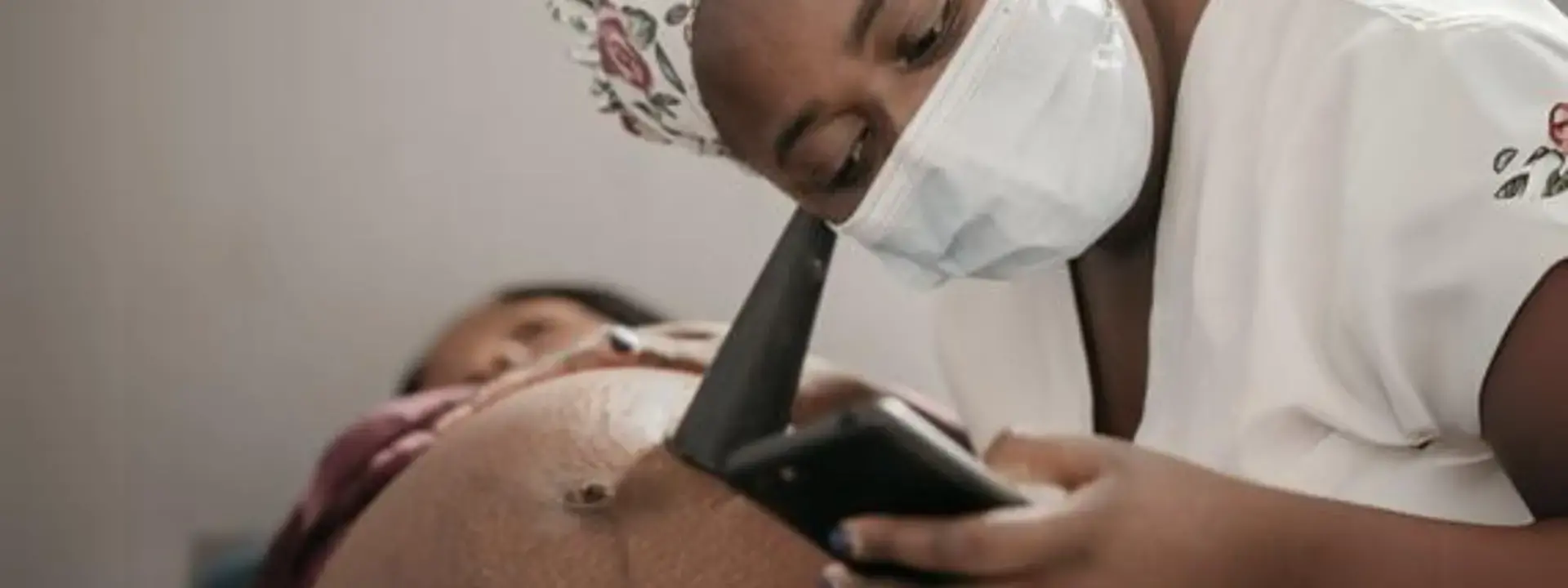Reducing maternal and infant mortality has been declared a top priority by the Angolan Executive. Despite significant efforts in recent years to improve sexual and reproductive health, key indicators still reflect a concerning situation. To address this, the Ministry of Health has set ambitious national targets: reducing maternal and infant mortality rates by 50% and increasing the coverage of institutional births attended by trained professionals by 80% by 2017, as outlined in the National Health Development Plan (2012-2025).
Currently, around 50% of births in Angola occur outside of health facilities, with the same percentage lacking the assistance of trained professionals. In rural areas, this figure drops even further, to about 20%. Angola has committed to various international and regional initiatives aimed at improving women's health, including the ICPD (1994), the World Conference on Women (1995), the MDGs (2000), the Maputo Declaration (2006), and the Accelerated Campaign for the Reduction of Maternal Mortality (CARMMA-2010). These efforts have contributed to a gradual reduction in maternal mortality, from 1,400 deaths per 100,000 live births in 1990 to 460 in 2014.
Tragically, most maternal deaths are preventable. Hemorrhage during pregnancy or childbirth accounts for one-third of these deaths, while other significant causes include high blood pressure, obstructed labor, HIV, malaria, tuberculosis, and other infections. Additional risk factors include teenage pregnancy and short intervals between births.
It is estimated that complications during pregnancy and postpartum directly cause 15% of maternal deaths, with 67% of institutional maternal deaths attributed to these direct causes. Among the indirect causes, malaria is responsible for 25% of maternal deaths.
-
Among the indirect causes of maternal death, malaria is responsible for 25% of all deaths.
-
Only 26% of pregnant women sleep under a mosquito net treated with long-lasting insecticide and 18% of pregnant women receive the 2nd dose of Intermittent Preventive Treatment against malaria (IPTp).
-
Of the total number of people living with HIV, 59% are women over 15 years of age, and treatment coverage for the Prevention of Vertical Transmission of HIV is only 45%.
-
The proportion of women using modern contraceptive methods is only 13%.
The lives of many pregnant women can be saved by training midwives, ensuring consistent prenatal care, providing emergency obstetric services, offering family planning options, and ensuring comprehensive access to sexual and reproductive health services.
UNFPA's Work in Angola
UNFPA’s efforts in Angola are centered on enhancing the availability and utilization of integrated sexual and reproductive health services, including family planning, maternal health, and HIV prevention. These services are designed to be gender-sensitive and adhere to human rights standards, ensuring high-quality care and equitable access for all.
Key Priority Actions
- Providing technical support for the operationalization of the Commission and Committees for the Prevention of Maternal and Neonatal Deaths
- Supporting the Angolan Ministry of Health in the development of the Adolescent Health Strategy, in the evaluation of Emergency Obstetric and Neonatal Care
- Providing technical assistance in updating national protocols for sexual and reproductive health services, particularly targeted at young people and respecting the cultural context
- Advocate for the expansion of Youth-Friendly Reproductive Health services, integrating FP and HIV-AIDS
- Support MINSA in expanding the National Obstetric Fistula Treatment Program
Adolescent Health Strategy
UNFPA in Angola supports MINSA in developing the Adolescent Health Strategy, with a view to improving the sexual and reproductive health situation in the country.
The focus of this work is the review of sexual and reproductive health care protocols, in which UNFPA's contribution focuses on the integration of the various existing services, namely family planning, prenatal consultation, childbirth and postpartum care, HIV counseling and testing, and prevention of vertical transmission. In addition to strengthening MINSA's capacity to improve the Health Information System, one aspect of UNFPA's work in this 7th cycle is technical support in the management and logistics of reproductive health products.


